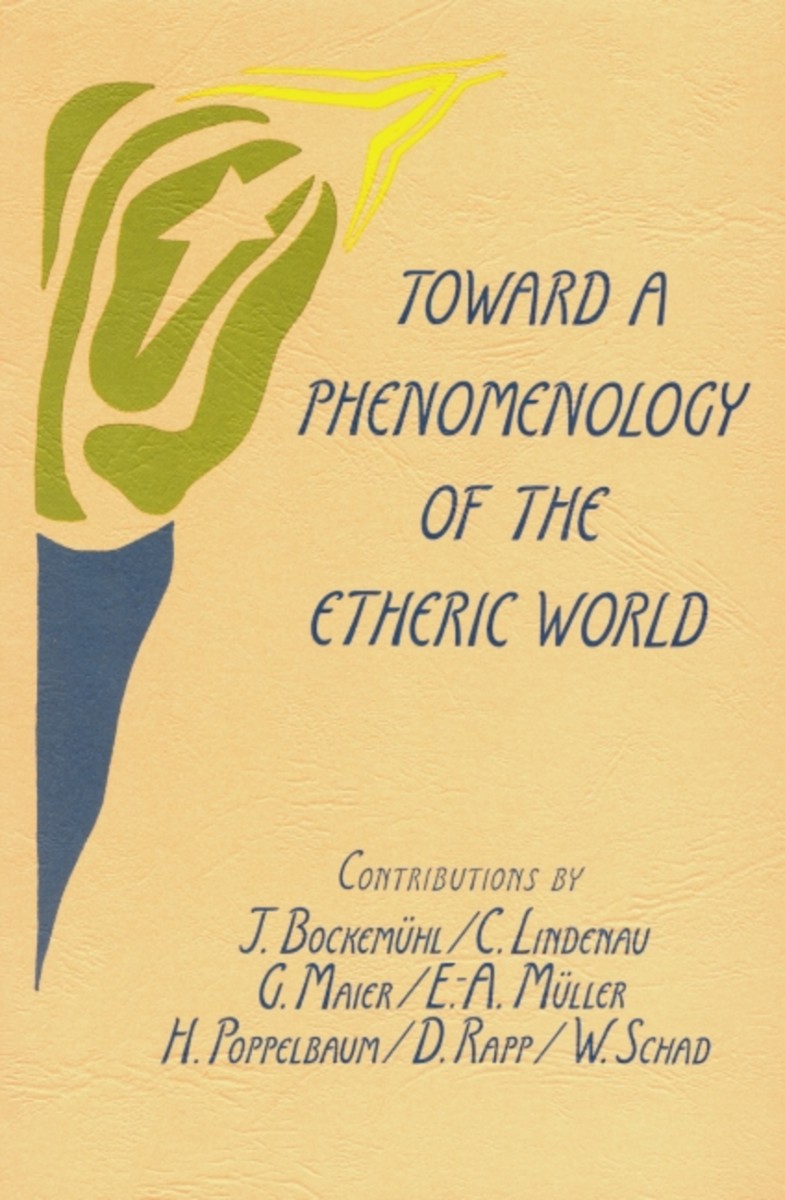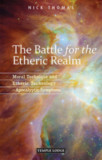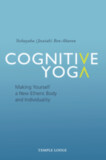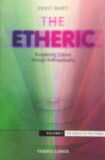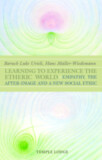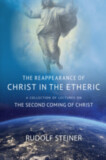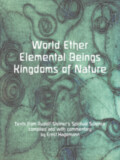Toward a Phenomenology of the Etheric World
Investigations into the Life of Nature and Man
Edited by Jochen Bockemühl
Preface by Arthur Zajonc
- Publisher
SteinerBooks - Published
1st June 1985 - ISBN 9780880101158
- Pages 256 pp.
- Size 5.5" x 8.25"
For more than three centuries, scientists have studied the world as detached observers. In doing so, science has achieved marvelous results, but it has also lost the sense of the whole that earlier cultures possessed. By concentrating on the "text" of the physical world, science has lost the context—the etheric world of life forces.
Goethean phenomenology (so named for Goethe's observations) is a scientific method capable of bringing the clarity of natural science to this context of phenomena. Unconsciously, scientific observers have always been using the context to read the text. The phenomenological method involves training observers to look at the activity of thinking itself as it perceives intentionally. It then uses this activity itself as a means of perception. The observer thus becomes conscious that physical nature is indeed a text, and that its meaning derives from the etheric context.
Unlike the more common hypothetical and deductive methods—which presupose a detached observer—the phenomenological method is based on active participation by the observer. This eliminates the need to construct speculative hypotheses; the observer's awareness of his or her own intentionality ensures the veracity of the observations. The etheric world is not a new hypothesis; it is, however, a new domain of observation.
The authors—Jochen Bockemühl, Christof Lindenau, Georg Maier, Ernst-August Müller, Hermann Poppelbaum, Dietrich Rapp, and Wolfgang Schad—have all written extensively on "participatory" science and related matters. In this ground-breaking collection, they each explore an aspect of the etheric world and its relationship to human thinking. They systematically lead the reader into the "formative movements" of nature and offer genuine insight into the far-reaching mystery of life.
C O N T E N T S:
Preface to the English Edition by Arthur G. Zajonc
Introduction by Jochen Bockemühl
“Elements and Ethers: Modes of Observing the World” by Jochen Bockemühl
“Light and the Pictorial Appearance of the World” by Georg Maier
“Streaming: A Picture of the Etheric” by Ernst-August Müller and Dietrich Rapp
“The Formative Movements of Plants” by Jochen Bockemühl
“Scientific Thinking as an Approach to the Etheric” by Wolfgang Schad
“Life Organization and Thought Organization” by Christof Lindenau
“The Concept and Action of the Etheric Body” by Hermann Poppelbaum
About the Authors
Translation Credits
Jochen Bockemühl
Jochen Bockemühl (1928–2020) was born in Dresden. He studied zoology, botany, chemistry, and geology and, in 1956, became a coworker at the Research Institut at the Goetheanum. From 1970 to 1996, he was director of the Natural Science Section, and beginning in 1980 led seminars on landscape in Europe and elsewhere. His publications in English include: In Partnership With Nature, Dying Forests, Toward a Phenomenology of the Etheric World, and Awakening to Landscape.
Georg Maier
Georg Maier (1933–2016) directed research into modes of observation and conceptualization of nature at the Forschungslinstitut am Goetheanum in Dornach, Switzerland. Previously, he had been engaged in neutron diffraction research at the Kernforschungsanlage Jülich (KFA) in Germany. Maier coauthored Being on Earth (1996) and The Marriage of Sense and Thought (1997).
Hermann Poppelbaum
Hermann Poppelbaum (1891–1979) was born in Frankfurt am Main. His interest in science awoke during his youth, and, with his brother, he founded the “Linneo” zoological association, which became the “Minerva” youth scientific association. He focused on questions of evolution and heredity at a time when controversy surrounded Haeckel's ideas. In 1913 he graduated in natural sciences with an experimental thesis, “Studies in androgynomorphic butterflies.”
During World War I, as an officer and prisoner of war in France, a kind of university was organized in the officers’ concentration camp, where Poppelbaum lectured on heredity and evolution. In the camp he met Otto Palmer, who invited him to join the study group focused on Rudolf Steiner's writings.
In 1920, he met Rudolf Steiner and participated in the formation of the Anthroposophical Society and, in 1930, became a member of the Board of Directors. After the National Socialist authorities banned the Anthroposophical Society in 1935, he was interrogated by the Gestapo, prompting him to emigrate to England with his wife and two children. In 1939, the outbreak of World War II surprised him in New York, where he was giving a series of lectures, forcing him to remain in the U.S., where he helped to establish North American Waldorf schools.
In 1948 he rejoined his family in Switzerland and, in 1949 became director of the Pedagogical Section at the Goetheanum, and in 1963 director of the Natural Sciences Section.
Wolfgang Schad
Wolfgang Schad (1935–2022) was Professor at the University of Witten/Herdecke in Germany. Born in southern Germany, he studied biology, chemistry, and education before becoming a science teacher in 1962 at the Goetheschule (Waldorf school) in Pforzheim. From 1975 until 1991, he taught at the Seminar for Waldorf Education in Stuttgart and, in 1992, was appointed head of the Department of Evolutionary Biology and Morphology at the University of Witten/Herdecke, a position he held until retiring in 2005.
Dietrich Rapp
No information
Ernst-August Müller
No information


